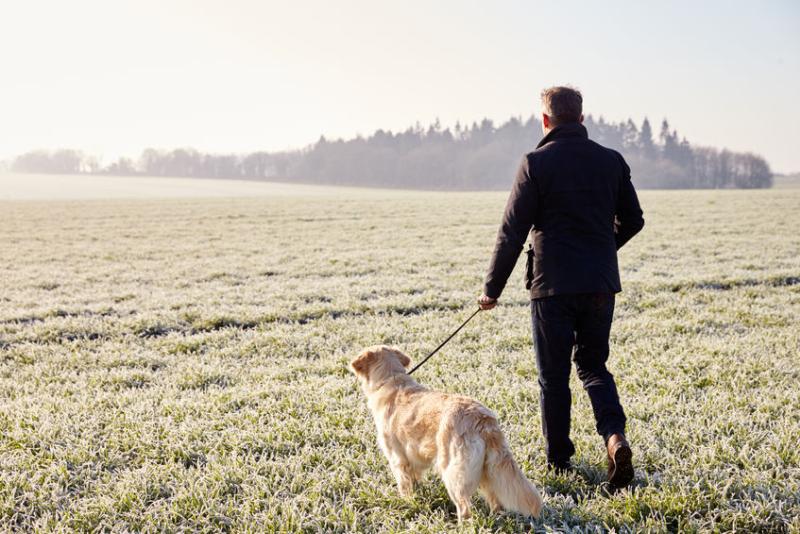
A new report has been released highlighting the scale of dog attacks on livestock - livestock worrying - and the challenges faced by police forces in supporting farmers to deal with the issue.
At present, dog owners are not obliged to make a report to the police if their dog attacked any livestock, and attacks are not treated as a ‘recordable crime’ on police systems.
As a result, there has been little reliable police data on the scale of the problem facing farmers and livestock owners.
However, a recent report by the All Party Parliamentary Group for Animal Welfare estimated that around 15,000 sheep alone were killed by dogs in 2016, putting the cost to the farming sector at around £1.3m.
Over the last year, five police forces - North Yorkshire, Devon and Cornwall, Sussex, North Wales and Hertfordshire - have been taking part in an initiative to look at the true extent of livestock worrying in the countryside.
1705 incidents
The forces analysed data on their systems from September 2013 to 2017 and found that there were 1705 recorded incidents of livestock worrying and attacks in the five force areas.
It shows that 1928 animals were killed, and 1614 injured – at an estimated cost of £250,000.
11 per cent of the incidents involved repeat offenders – owners or walkers whose dog had worried or caused damage to livestock before.
The data shows that the dog owner was not present at the time of the attack in the majority of incidents, showing that the issue goes beyond keeping dogs on a lead.
Challenges
The new report, by the National Police Chiefs’ Council (NPCC), considered the findings and identified challenges faced by police forces when dealing with sheep worrying.
It shows that many animals such as llamas, alpacas, emus and ostriches are subject to dog attacks, but are not defined as livestock meaning they are not covered by the law.
Attacks are only unlawful in particular locations. For example, if an attack takes place on a public lane it is not classed as unlawful.
The report shows that police officers are unable to search a dog-owner’s home to search for and seize a dog that has worried or caused damage to livestock.
Businesses such as kennels are not legally responsible for attacks, even if these attacks are carried out by dogs in their care.
Dog owners do not have a legal responsibility to report when their dog has attacked livestock.
Livestock worrying is not a crime which is regularly recorded on police systems, missing the opportunity improve the data picture.
'Very significant issue'
NPCC Lead for Wildlife and Rural Crime, Chief Constable David Jones said the project provides "hard data" showing livestock worrying as a "very significant issue" for farmers that impacts on their livelihoods.
“We need dog-owners to take responsibility for their animals – not just by putting their dogs on a lead when out walking, but by preventing them from escaping from home and causing damage to livestock,” Mr Jones said.
“We need livestock owners to report incidents so that we can gather intelligence and launch investigations. Above all, we need the powers to tackle this problem effectively and an overhaul of the outdated and sometimes ineffective rules surrounding livestock worrying”.
Lord Gardiner, Minister for animal welfare, said livestock worrying is "distressing" for farmers and animals and can have "serious financial repercussions".
“That is why Defra have been working with community organisations including Sheepwatch, and with Police forces to highlight the support available, encourage farmers to report incidents to the authorities and for the police to take appropriate action,” Lord Gardiner explained.
“The report makes a number of recommendations and proposals for improvements to the legislation which I will be looking at closely.”
